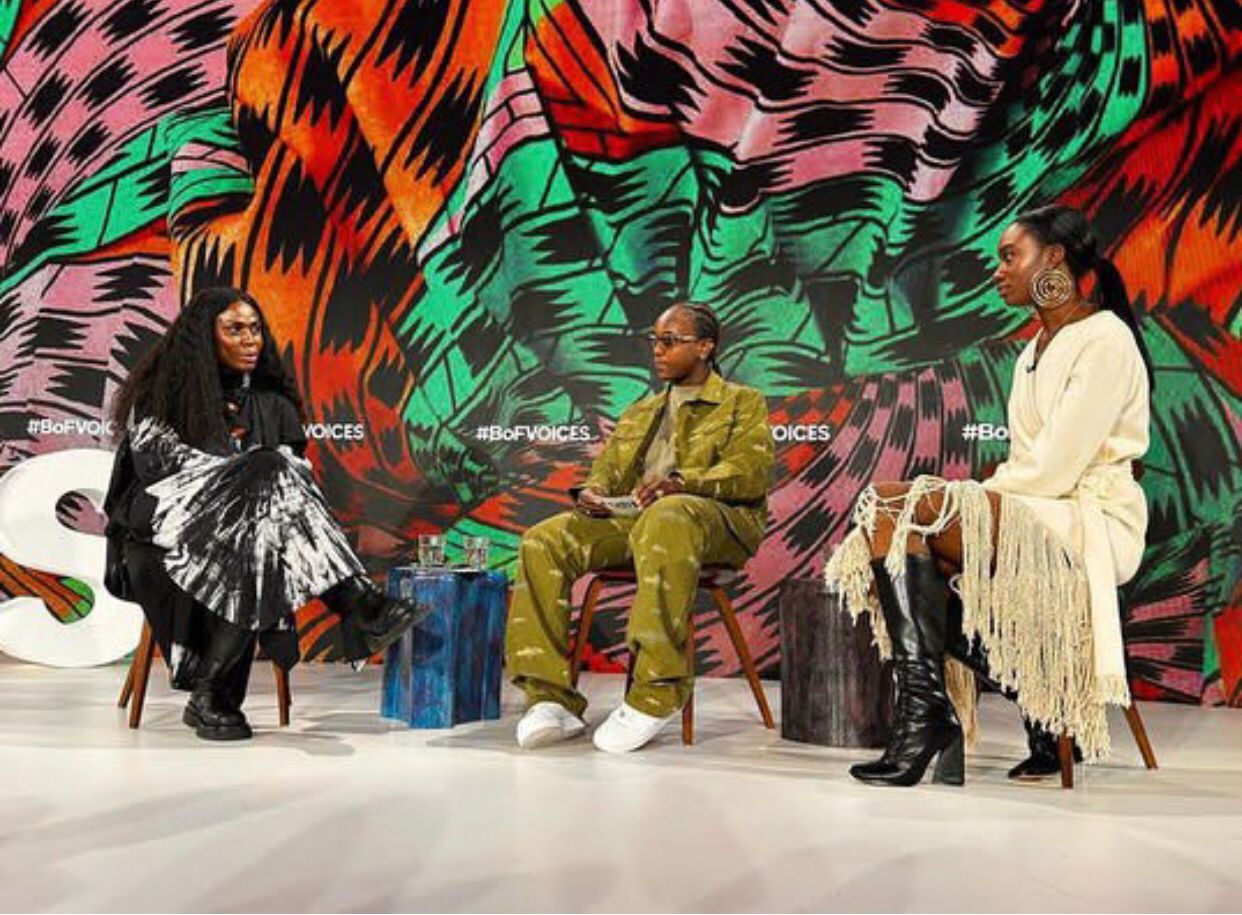
The Nigerian fashion industry stands at a pivotal moment in 2024, poised for growth, innovation, and global recognition. With its rich cultural heritage, vibrant creativity, and increasing investment in infrastructure, technology, and talent, Nigeria’s fashion scene continues to captivate both local and international audiences. As we delve into the outlook for the Nigerian fashion industry in 2024, it’s essential to; analyze the emerging trends, acknowledge the persistent challenges, and explore the abundant opportunities that lie ahead.
The Nigerian Fashion Industry today
Emerging Trends
In 2024, several trends are shaping the landscape of the Nigerian fashion industry;
Sustainable Fashion
There’s a growing consciousness among Nigerian designers and consumers about the environmental and social impact of fashion. Many designers are embracing sustainable practices, including the use of eco-friendly materials, ethical production methods, and recycling initiatives. This trend aligns with global movements towards sustainability and resonates well with environmentally-conscious consumers.
Digital Transformation
The digital revolution has accelerated the growth of the Nigerian fashion industry. Designers are leveraging social media platforms, e-commerce websites, and digital marketing strategies to reach broader audiences, both domestically and internationally. The rise of online fashion communities and influencer marketing has democratized fashion. Thus, providing opportunities for emerging talents to gain visibility and recognition.

Cultural Heritage Revival
Nigerian fashion celebrates the country’s diverse cultural heritage. In 2024, there’s a renewed interest in traditional fabrics, motifs, and craftsmanship. Designers are infusing contemporary designs with elements of Nigerian culture, creating unique and culturally resonant pieces that appeal to both local and global markets.
Inclusive Fashion
Diversity and inclusivity are gaining prominence in the Nigerian fashion industry. Designers are embracing body positivity, gender diversity, and inclusivity in their collections. As susch, they are challenging conventional beauty standards and promoting acceptance and empowerment. This inclusive approach not only reflects the diverse realities of Nigerian society but also resonates with consumers seeking authentic and relatable fashion experiences
Persistent Challenges
Despite its immense potential, the Nigerian fashion industry faces several challenges;
Infrastructure Constraints
Inadequate infrastructure, including transportation, power supply, and logistics, poses significant challenges to the growth and sustainability of the fashion industry. Poor infrastructure leads to delays in production, increased costs, and limited access to markets, hindering the industry’s competitiveness on a global scale.
Intellectual Property Protection
Intellectual property rights enforcement remains a challenge in Nigeria, with rampant cases of counterfeiting, piracy, and copyright infringement plaguing the fashion industry. The lack of robust legal frameworks and enforcement mechanisms undermines the creative efforts of designers and stifles innovation and investment in the sector.

Skills Development
While Nigeria boasts a wealth of creative talent, there’s a need for structured skills development programs and capacity building initiatives to nurture emerging designers, artisans, and industry professionals. Access to quality education, training, and mentorship opportunities is essential to equip the next generation of fashion entrepreneurs with the knowledge and skills needed to thrive in the competitive global marketplace
Opportunities for Growth
Amidst the challenges, the Nigerian fashion industry is ripe with opportunities for growth and expansion;
Investment and Collaboration
Increased investment in the fashion ecosystem, including infrastructure development, technology integration, and skills enhancement, can catalyze growth and innovation within the industry. Public-private partnerships, collaborations between industry stakeholders, and strategic alliances with international brands and institutions can create synergies and unlock new opportunities for market expansion and value creation.
Export Potential
Nigeria’s rich cultural heritage and diverse fashion aesthetics have the potential to resonate with global consumers. By leveraging digital platforms, participating in international fashion events, and adhering to quality standards and best practices, Nigerian designers can access new markets and establish a strong global presence. Government support in terms of trade facilitation, market access, and promotional initiatives can further enhance the export potential of Nigerian fashion brands.

Technology Adoption
Embracing technology innovations, such as 3D printing, virtual reality, and artificial intelligence, can revolutionize the design, production, and distribution processes within the Nigerian fashion industry. By harnessing the power of technology, designers can enhance efficiency, reduce costs, and offer personalized experiences to consumers, thereby staying ahead of market trends and consumer preferences.
Photo credit: African Fashion Stakeholders at BOF Voices 2023.

